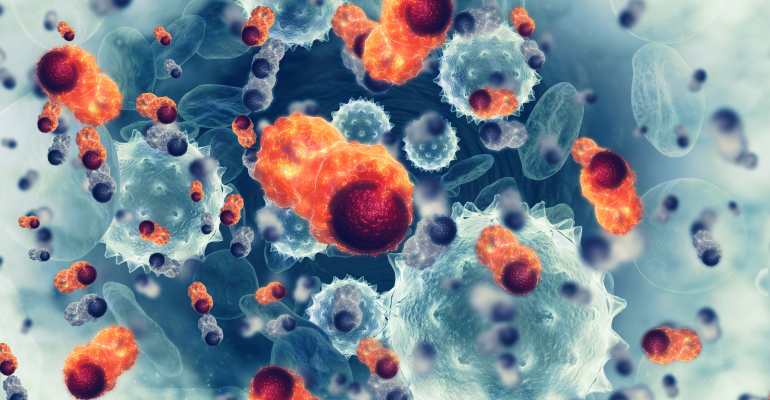An estimated two per cent of the global population are immunocompromised, meaning they have weakened immune systems that leave them at heightened risk of infection from bacteria and viruses, according to a report by Astrazeneca on immunocompromised patients.
The Forgotten Millions: “Mapping Immunocompromised Patients in the Middle East and North Africa” report highlights the needs of this high-risk population and argues that protecting this group is critical. It further showcases the scale and experience of immunocompromised patients in the Middle East and North Africa (MENA) and recommends measures to better protect high-risk patients in the future.
In an e-mail interview, co-author of the study Professor Humaid Al-Shamsi, President of the Emirates Oncology Society and Director of Oncology Services at Burjeel Holding, said that there is a lack of comprehensive data and understanding on immunocompromised individuals in the Middle East and North Africa, leaving millions of people across the region vulnerable and disrupting efforts to end the pandemic.
“The reality of not prioritising people who are at high-risk is alarming. For this reason, public health officials and policymakers are urged to be more concerned about those at risk,” said Prof. Al-Shamsi.
He added that a variety of conditions can weaken the immune system, notably cancer, which is highly prevalent and one of the leading causes of death in the MENA region. An estimated 1,027,939 people are living with cancer at any given time. Others include diabetes, which affects more than 70 million people (18.1 per cent) and chronic kidney disease, which is directly related to diabetes, with rates ranging from 5.2 per cent to 10.6 per cent.
“Urgent action is needed from all stakeholders to increase understanding of the scale and needs of medically vulnerable people, to protect and support them now and into the future,” he said. According to Prof. Al-Shamsi, cancer and diabetes represent up to one-third of the current overall disease burden in the MENA region.
“Between patients with cancer, chronic kidney disease (CKD), diabetes and other conditions that require prolonged administration of steroids and HIV/AIDs, the impact is felt across tens of millions of people across the region who are immunocompromised as a result,” he said.
He also said that secondary immunodeficiency (SID) – by far the most common type – occurs when factors outside the immune system suppress its normal function, such as chronic conditions including, for example, cancer and cancer treatments.
“Research studies specific to this region is critical as there is currently a lack of comprehensive data and understanding on immunocompromised individuals in the MENA region, leaving millions of people across the region vulnerable and disrupting efforts to end the pandemic,” added the professor.
Dr Al-Shamsi said that in partnership with policy makers in the region, there was a need to accelerate the collection of centralised data on high-risk groups, including the creation of national registries, to better map the scale and spread of vulnerable population, prioritising those at highest risk e.g., cancer patients and solid organ transplantees.
“We also recommend prioritising interventions to protect high-risk patients from COVID-19 including public health measures, vaccines and therapies that are specifically researched and developed, and working with health care providers to ensure these options are well-communicated to patients,” he said adding that collaboration with patient groups and civil society organisations are important to ensure that immunocompromised voices are included in decisions that impact them.
The report has been co-authored by Dr. Viraj Rajadhyaksha, Area Medical Director, Middle East and Africa, AstraZeneca and Dr. Emad Shash, Medical Director of the Breast Cancer Comprehensive Center of the Egypt National Cancer Institute, Cairo University.

